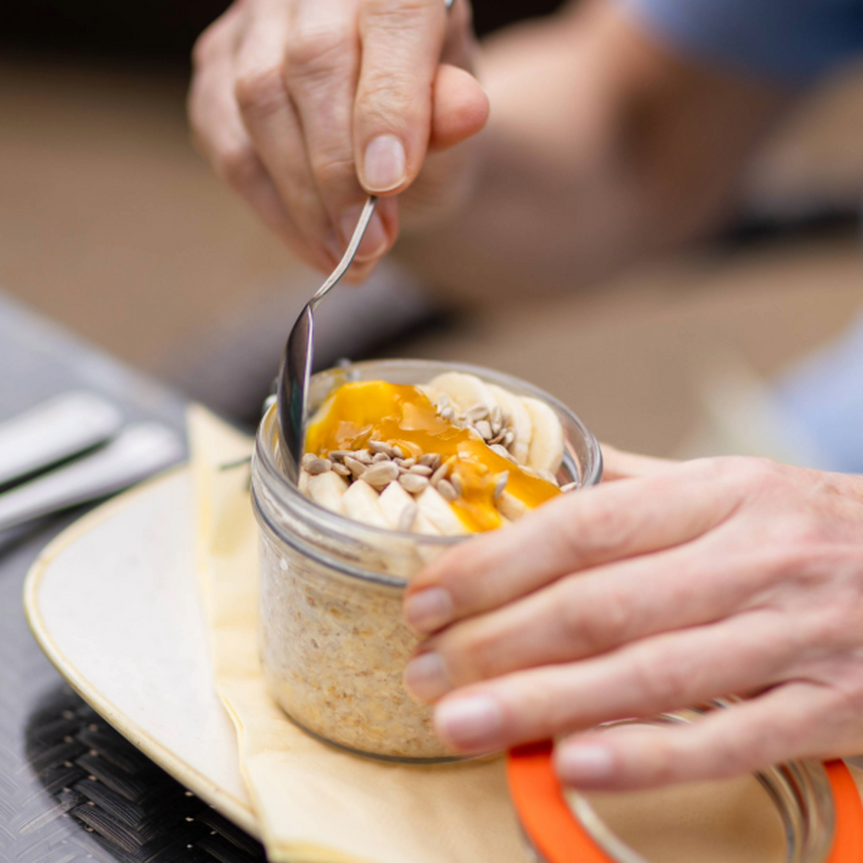What Are Probiotics?
Probiotics are live bacteria and yeasts promoted as having various health benefits.
They are often referred to as "good" bacteria because they are thought to help maintain a healthy balance in the gut microbiome. For example, there is some evidence that probiotics may be helpful in helping to ease some symptoms of irritable bowel syndrome (IBS). However, if you have an existing health condition or a weakened immune system, you should talk to a doctor before taking any probiotic supplements. Some common sources of probiotics are yoghurt, kefir and sauerkraut.
What Are Prebiotics?
Prebiotics, on the other hand, are types of fibre that your body can’t digest. Instead of being broken down and absorbed like other nutrients, prebiotics travel to the colon, where they act as food for the beneficial bacteria already living in your gut. Essentially, prebiotics "feed" the probiotics, helping them grow and thrive.
Prebiotics are crucial for supporting the health of your existing gut bacteria and ensuring they remain active and beneficial.
The Key Differences Between Probiotics and Prebiotics
• Probiotics are live bacteria that are introduced into your gut through foods or supplements.
• Prebiotics are fibres and nutrients that feed the beneficial bacteria already present in your gut, encouraging them to multiply.
In short, probiotics are the beneficial bacteria themselves, while prebiotics are the food these bacteria need to flourish.

Practical Ways to Incorporate Both Prebiotics and Probiotics
Below are some ideas of practical ways to incorporate both prebiotics and probiotics into your diet. Before making dietary adjustments we always recommend consulting with a healthcare professional to make sure it’s right for you and your body.
1. Breakfast Boost: Start your day with a gut-friendly breakfast. For example, top your Greek yoghurt (probiotic) with sliced bananas or apples (prebiotic), and sprinkle some flaxseeds (prebiotic) on top for an added boost.
2. Lunch Ideas: Make a lentil and spinach salad (both prebiotics), and serve it with a side of sauerkraut or kimchi (probiotics). You can also add a miso-based dressing for a double dose of probiotics.
3. Snack Time: Snack on carrot sticks with a miso dip (probiotic) or hummus made with garlic (prebiotic) for a gut-friendly option.
4. Dinner Options: Cook a stir-fry with tempeh (probiotic), and include plenty of garlic, onions, and leeks (prebiotics) to give your gut a healthy dose of both.
5. Drink Swap: Replace sugary soft drinks with kombucha (probiotic), and enjoy a glass of kefir instead of regular milk to support your gut with every meal.
Always take responsibility for your own dietary needs and consult with a healthcare professional before making any significant changes to your diet.
